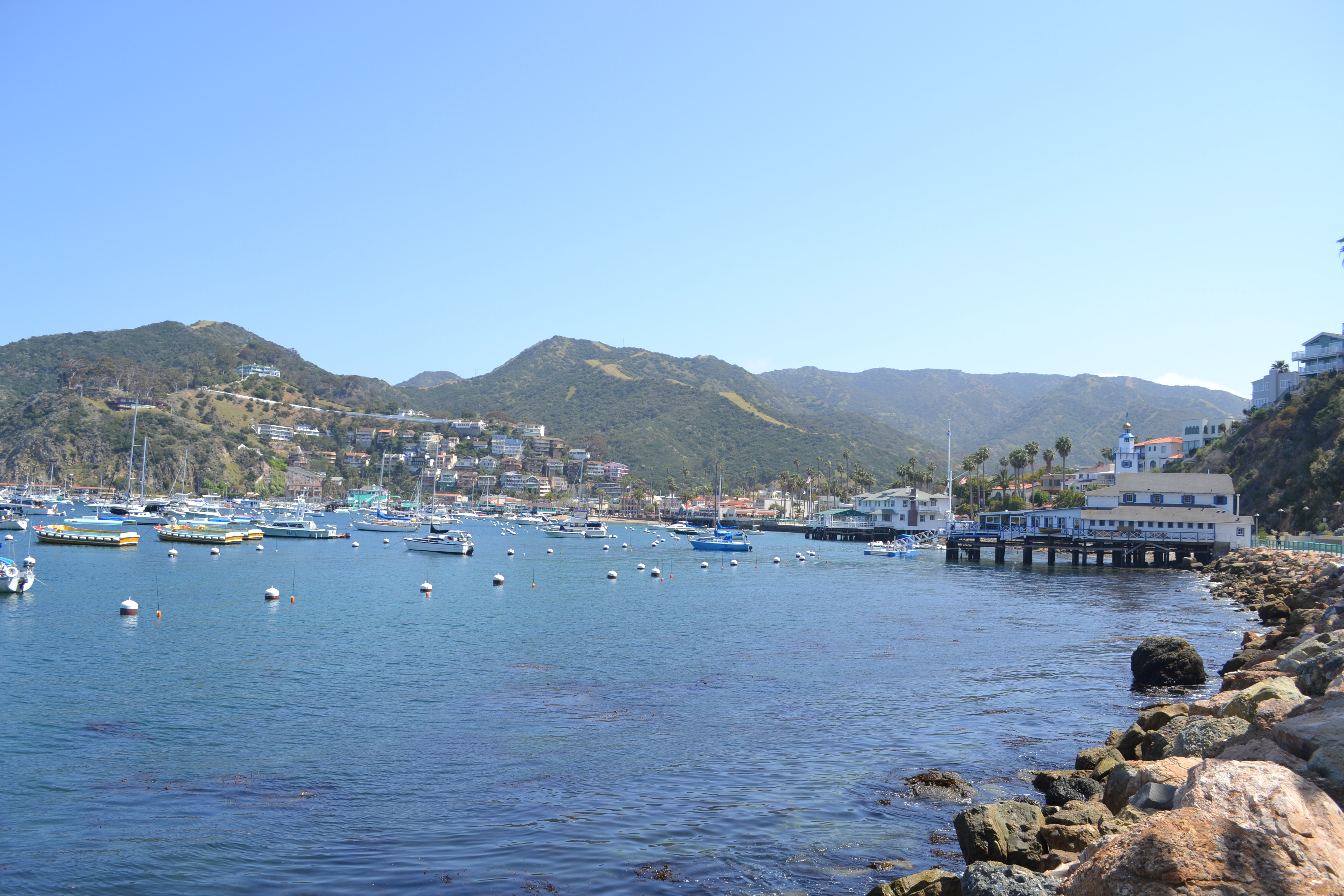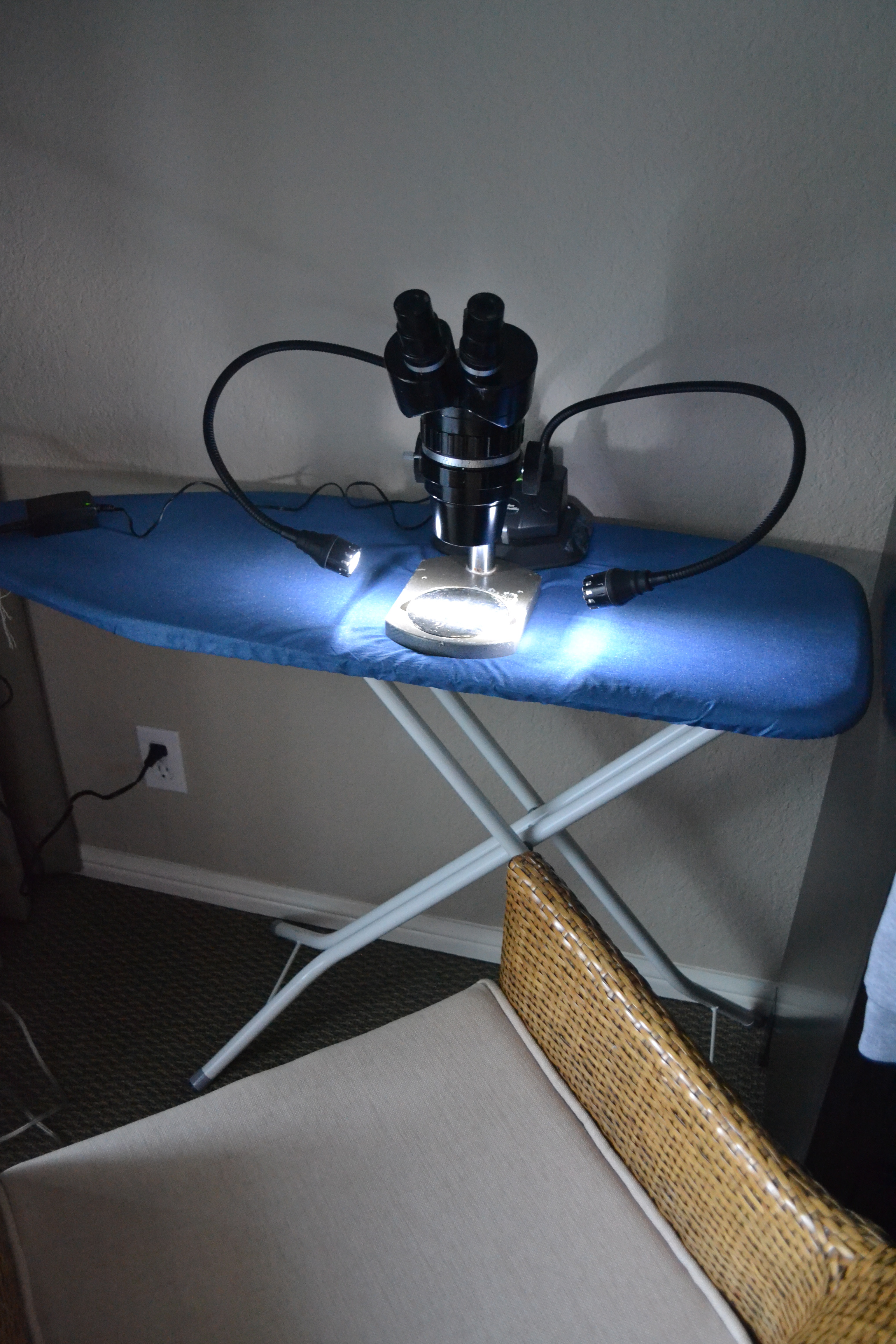By Catherine Drake, Invertebrate Zoology Lab
Sometimes when sampling, you have to be resourceful. Not everything will go according to plan (an instrument might break or a sampling method may not work), which is why problem solving is a great skill for any scientist to have. Such mishaps can even be humorous, as I found with my trip to Catalina Island with the Biological Oceanography lab two weeks ago.

We set out for Catalina Island in the early morning of Sunday, May 6th to meet the TS Golden Bear as it traveled around the island on its way southward. Two of our crew boarded a small boat and made their out to the ship, while the rest of us explored the beautiful island. While on the ship, the others worked on the treatment of the ship’s ballast water, took samples, and brought them back to the island. Then, it was time for us to start our zooplankton counts.
The issue we faced was that we had no facility to conduct out counts in, so we had to improvise. Time for us to put our problem solving caps on! We went into the hotel room and started to stare at all the objects—furniture, cabinets, shelves, etc.—to figure out how we could setup our counting stations. Our final configurations worked like a charm! My setup comprised of an ironing board, a wicker chair, and a microscope. And although the stations weren’t conventional, we were still able to get the data, and had fun in the process.


